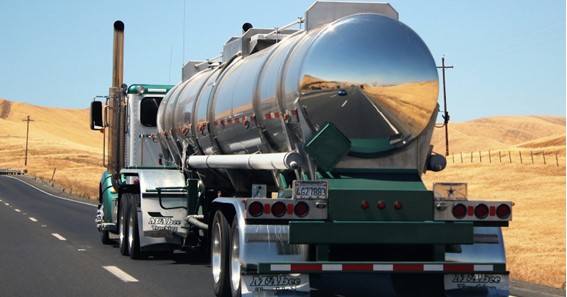Suppose you own a small trucking company, and you’re exploring your insurance options. In that case, you’re probably wondering how to keep costs down while remaining compliant with the Federal Motor Carrier’s Safety Administrations rules. You wonder how the insurance payouts will work if you ever need to file a claim.
Insurance Required by Law
Truck drivers and non-truck drivers alike are required to buy liability insurance. If a person causes an accident, it’s their liability insurance that will cover the medical bills of anyone who was injured. It also covers repairs to their vehicle.
A commercial truck driver is required to have more insurance than your average driver. If your trucks weigh over 10,000 pounds and cross state lines or carry hazardous materials that require placarding, you must have liability insurance between $750,000 to $5,000,000. The exact amount will be determined by the type of cargo you carry. If you carry non-hazardous material in a truck that weighs less than 26,000 pounds, you’ll need $300,000 worth of insurance.
click here – A Quick Guide To Blockchain Development Services & Benefits
If you own a moving company that transports household goods, you will need $5000 of cargo insurance for each vehicle and $10,000 for each incident.
You’re likely to need more insurance than the law requires. Your clients must know that their cargo is 100% covered if damaged or stolen. When you make a contract with a new client, there will be a clause stating the amount of insurance you’ll have when transporting their cargo.
Other Types of Insurance
There are several types of insurance you should get than those policies required by law. You’ll need physical damage insurance for your truck. This type of insurance covers damage to your truck if your driver causes an accident. It also covers damage from nature, such as hail, snow, and potholes. Vandalism is a growing problem these days, and physical damage insurance will cover this kind of repair as well.
If you own reefer trucks, you’ll need a special type of insurance. Reefer truck insurance covers anything that can go wrong in a refrigerated truck. It includes spoilage of products and damage to the truck itself.
Although it may seem like an additional expense, reefer insurance acts as liability, cargo, and physical damage insurance for reefer trucks. When you consider everything that can go wrong with a truck, it’s a good deal.
Anyone running any brick-and-mortar business needs general liability insurance for their property. People will come and visit your facility all the time. Salespeople will try to get you to buy their wares, and clients will want to see your center of operations. If one of those visitors is injured, you must pay their medical bills. General liability insurance will cover you if someone is injured on your property.
click here – Credit Card Machines – Everything You Need to Know
Filing an Insurance Claim
When one of your drivers has an accident, they’ll contact the police and wait for them to arrive. The police will fill out an accident report. Anyone who needs medical treatment will get it. The accident will be reported to the FMCSA.
Your company will then file a claim with the insurance company. You’ll need the driver’s licensure information. You’ll also need the license plate and DOT number of the truck. You should provide them with the accident report and any photographs of the accident.
The insurance company will investigate the report and approve or deny the claim. If they approve the claim, they’ll make you a settlement offer. You’ll want to consult with your company’s law firm before accepting what the insurance company offers.
It’s best to buy your insurance from a company that can provide you with a comprehensive bundle. If you have great insurance, you can rest easy during those few hours of running a trucking company.
